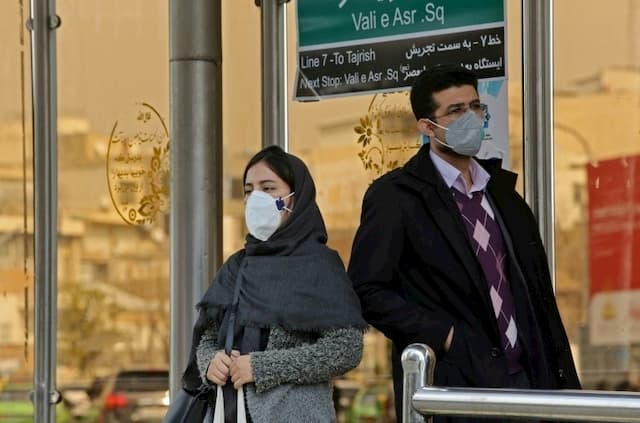Coronavirus: Iran Puts in Place Travel Restrictions

The coronavirus has already killed 19 people in the country, the heaviest toll after that of China. Nearly 140 Iranians, including the Deputy Minister of Health, were infected.
Since Wednesday 26th February, the Iranian authorities have announced restrictions on free movement in the country for people infected or suspected of being infected with the new coronavirus. The disease has already killed 19 people in the country, the heaviest toll after that of China.
“Rather than quarantining cities, we will implement restrictions on the movement of those suspected of being infected or who are infected,” said Health Minister Said Namaki in a press briefing.
“It was decided to place teams at the entrance of many cities where there is a lot of movement,” he said, without however specifying the localities that will be the subject of this control.
“I ask people not to travel,” added the minister, adding that anyone “suspected” of being infected with the Covid-19 virus “at the entrance to a city” will be “assuredly quarantined for 14 days “.
Read also: Coronavirus: investigation into the first French death and an 18th identified case
Four deaths in the past 24 hours
Nearly 140 people, including the Deputy Minister of Health, have been infected in Iran and most of the Islamic Republic’s neighbours have implemented travel restrictions and quarantine measures.
On Wednesday, the spokesperson for the Ministry of Health, Kianouche Jahanpour, announced the death of four new people among 44 new infections detected in the past 24 hours.
Many schools, universities and cultural or sports centres have been closed and many events postponed to allow disinfection of public places and transport. In the infected areas, the closure of schools will be extended, while that of universities is renewed for a week (as of Saturday), according to Said Namaki.

24 Internet users arrested
Police responsible for fighting cybercrime also announced the arrest of 24 internet users accused of spreading ” alarmist rumours” about the spread of the virus in Iran.
“Twenty-four people were arrested and brought to justice and 118 Internet users were interrogated and released,” after receiving a warning, said Vahid Majid, the head of the police unit responsible for cybercrime, according to l semi-official agency Isna.
The arrests came after the establishment of a special unit to “fight alarmist rumours about the” spread of the coronavirus in the country, “said Vahid Majid. He said his unit would take action against information, images and videos “containing rumours or false information aimed at raising concern in society”.

Vice Minister of Health Contaminated
On Monday, a deputy from Qom reported 50 deaths from the coronavirus. Deputy Minister of Health Iraj Harirch had initially denied these remarks, promising to resign if this figure was confirmed. However, he finally announced the following day that he had been infected himself.
Since the announcement on February 19 of the first two deaths in Qom, a Shiite holy city in the centre of the country, the government has promised to be more transparent after being accused of minimizing the toll of the epidemic and mismanaging the spread of the virus.
The French NGO Reporters Without Borders notably accused Iran of hiding information on the spread of the virus on Wednesday, deploring the repression of journalists publishing independent information.
Hassam Rohani stressed Iran’s progress in the face of the epidemic, citing “a drop in visits (to the hospital) and progress in treatment”.

“Slightly worrying”
According to the latest figures from the Ministry of Health, 15 new cases have been detected in the city of Qom, nine in Gilan, four in Tehran, three in Khuzestan and between one or two cases in ten other provinces.
At the same time, the Minister of Health announced ” restrictions on entry ” to several Shiite holy places, in particular the sanctuary of Fatima Massoumeh in Qom, the city where the epidemic occurred in Iran, and the mausoleum of Imam Réza in Machhad. (North-East), the second city of Iran, and a very large centre of pilgrimage.
Pilgrims will only enter if they are provided with “hand sanitizer, adequate information (about the disease), masks, and that they move around, that is, “They do not come together, but simply pray and leave,” said Saïd Namaki.
Enjoyed this? Get the week’s top France stories
One email every Sunday. Unsubscribe anytime.


